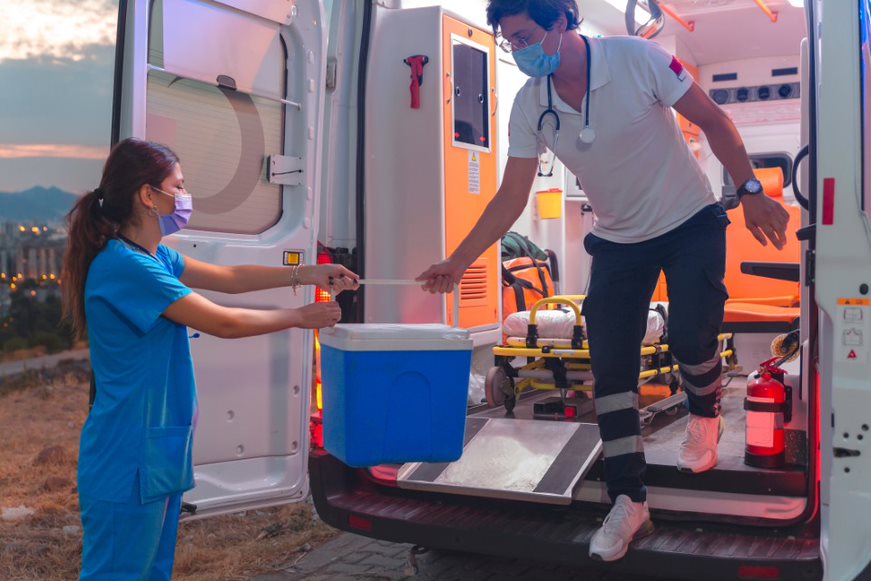You’ve been on the transplant waitlist for five long years because your kidneys have been damaged from disease and no longer work. Perhaps you have a rare blood type, or you’ve developed antibodies that make it harder to find a suitable organ donor. Some days, you think you will never get a new organ, that you will be on dialysis forever.
Then your transplant surgeon tells you he has found a suitable kidney. However, it carries the hepatitis C virus – a serious contagious disease that will most likely infect you once you are transplanted.
Would you accept the offered organ?
A recent VA Houston study published in Alimentary Pharmacology and Therapeutics found that hepatitis C positive organs are a safe and effective option for most transplant candidates. Newer antiviral drugs have made it possible for patients to be successfully treated for hepatitis C infections transmitted via organ transplant.
Review included studies that looked at more than 800 transplants
Researchers at the Michael E. DeBakey VA Medical Center and Baylor College of Medicine in Houston and the VA Pittsburgh Healthcare System reviewed 35 studies that examined outcomes for 852 solid organ transplants (SOT) in which the donor organs were positive for hepatitis C and the transplant recipients did not have the virus.
The review included studies that looked at 343 kidney, 233 heart, 204 liver and 72 lung transplants. Eight to 12 weeks after treatment with drugs called direct-acting antiviral agents (DAAs), 100% of the transplant recipients who were measured for viral load were cured of hepatitis C. Seven transplant recipients relapsed with hepatitis C infection, but all were successfully retreated. No patient deaths or organ graft failures related to hepatitis C infection were reported.
The study team conducted a systematic literature review using the U.S. PubMed and the European EMBASE databases. They reviewed SOT studies, between 2007-2021, that looked at graft survival, patient survival, and patient access to DAAs to treat post-transplant hepatitis C infections.
Insurance coverage primary hurdle
The studies included both “preemptive” and “reactive” treatment approaches for hepatitis C infection following transplant. Preemptive treatment involves starting the patient on DAAs just prior to or immediately following transplant with a hepatitis C positive organ. The reactive approach waits until the patient shows evidence of hepatitis C infection, through nucleic acid testing (NAT), before initiating treatment.
The study team suggests that using a preemptive approach to treatment is better for patients. “The preemptive approach is clearly preferred as complications were seen in the reactive approach,” write the study authors. “However, access to DAA therapy is a major factor when determining which approach is available for patients. Insurance coverage is probably the main hurdle for successful hepatitis C viremic donation.”
Not enough available organs
By not discarding hepatitis C-infected organs outright, surgeons can expand the number of transplant surgeries done each year and help thousands of people who might otherwise die or be removed from the transplant list, while they wait for a suitable organ.
“Some patients can wait years for an organ because they are not that sick,” according to medical criteria that are used to rank transplant candidates. “We know that for liver transplants, two out of 10 patients will be dropped from the transplant waiting list because they die from their liver disease or for other reasons,” says senior author Dr. Rubin Hernaez, assistant professor at Baylor, and transplant hepatologist at the VA Houston medical center.
There are far more people who need transplants than there are available organs. As of July 30, close to 107,000 people in the U.S. have been listed for an organ transplant, according to the United Network for Organ Sharing or UNOS. Of that number, nearly 65,000 are active transplant candidates. During the period January through July 2021, slightly more than 21,000 transplant surgeries have been completed. That means, for the first six months of the year, only one out of five people in the U.S. have received the lifesaving transplant surgery they so desperately need.
More Information
Click here to read the full story.
Click here to learn more about VA research.
Topics in this story
More Stories
This week, VA’s Office of Research and Development (ORD) published three new articles spotlighting research that advances care for Veterans in heart health, mental health and health-system navigation.
In a new series that highlights advancements in VA health care, VA researchers and clinicians are appearing on a Veteran-themed media platform—Wreaths Across America Radio—to tout their critical work.
Recently published findings from the VA Disrupted Care National Project [...]





